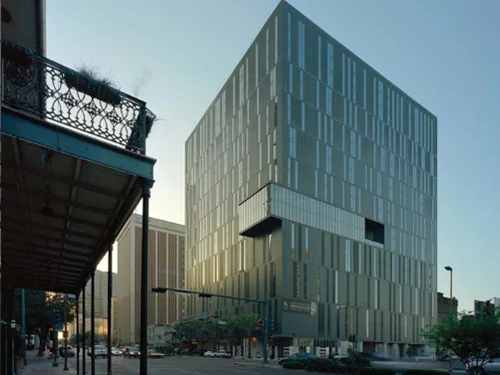How architects use propaganda
Every profession has their own jargon and certainly every profession uses language to its own advantage. I'm sure doctors, lawyers, accountants and others use language to their advantage at times to promote a viewpoint that is unpopular. But I'm an architect, so what I know is how architects do it. Today's example comes straight from our professional organization, the American Institute of Architects (AIA). Now, I'm an AIA member, and even a past President of the Kansas City chapter. I'm extremely proud of the work of that chapter, both past and present. It's a great group of people, working hard to promote design of all kinds and make the city a better place to live. In fact, that's indicative of most architects that I've met - they have a sincere and deep desire to make the world a better place. You almost have to believe that to put yourself through 5-6 years of architecture school and work in a profession that generally pays lower and works longer than any other. The reward is often in the work, and the mark we get to leave on the world.
The problem is (as I've written about before), there's a brainwashing that occurs in architecture school. Nearly every architecture school and its faculty promotes an approach to design that emphasizes the zeitgeist and glorifies individual creative genius. How do I know? I've been through it myself, participated in that approach, and for years have sat on juries reviewing student work. It's amazing how consistent that philosophy is from school to school across the country. I would argue that this mindset pays far too little attention to what human beings actually want and like, and pays only passing attention to issues of place - climate, culture and more.
This week the AIA announced its annual Firm of the Year award. It's a highly prestigious honor for those of us in the field. This year the award went to a firm out of New Orleans called Eskew+Dumas+Ripple. Hat tip to young architects: you're just not hip unless you have some sort of superscript or subscript or alternate character in your firm name.
Here's some language from the press release about the award:
The American Institute of Architects Board of Directors on Dec. 12 bestowed the 2014 AIA Architecture Firm Award to Eskew+Dumez+Ripple, the New Orleans firm that uses rigorously crafted Modernism to repair, restore, and enhance the unique cultural and historic context of their city.
and this:
A group of proud New Orleans architects, Eskew+Dumez+Ripple (EDR) makes Gulf Coast architecture that’s Modern, but innately attuned to the lifestyle, pace, climate, and cultural context of its city.
Now, I have no doubt that the good people at EDR are very proud of their city and believe the work they do is restorative. I also have no doubt that these are fine people, who I would personally enjoy meeting and talking with. For the most part, that's been my experience with architects. As a group, I like them very much and am always proud to call myself an architect.
But let's get real for a moment. Take a look at the renderings on the press release, and ask yourself some questions. For example, what about these projects really says "New Orleans?" Could these same buildings also be in Shanghai or Dubai or Seattle? What does it really mean to "repair, restore and enhance the unique cultural and historic context of the city" when your buildings stand in stark contrast on purpose? Why do so many of my fellow architects believe the bs (yes, it's bs) that respecting historic buildings means doing something complete different?
The reality is, this is another example of how architects use language to promote an ideology that they prefer. It's really no less than propaganda. If you really think those structures respect context or say something about the historic nature of the city, I would seriously question your vision and judgment. They may indeed be very well-crafted modern designs, as some of the photos on that site and the firm's webpage attest to. Some of the interiors are striking, as is the case in many modern buildings. But it's time for architects to stop twisting language to promote something that is flat-out not true. By now the story is tired, and frankly, more than a little silly.
If you got value from this post, please consider the following:
- Sign up for my email list
- Like The Messy City Facebook Page
- Follow me on Twitter
- Invite or refer me to come speak
- Check out my urban design services page
- Tell a friend or colleague about this site




